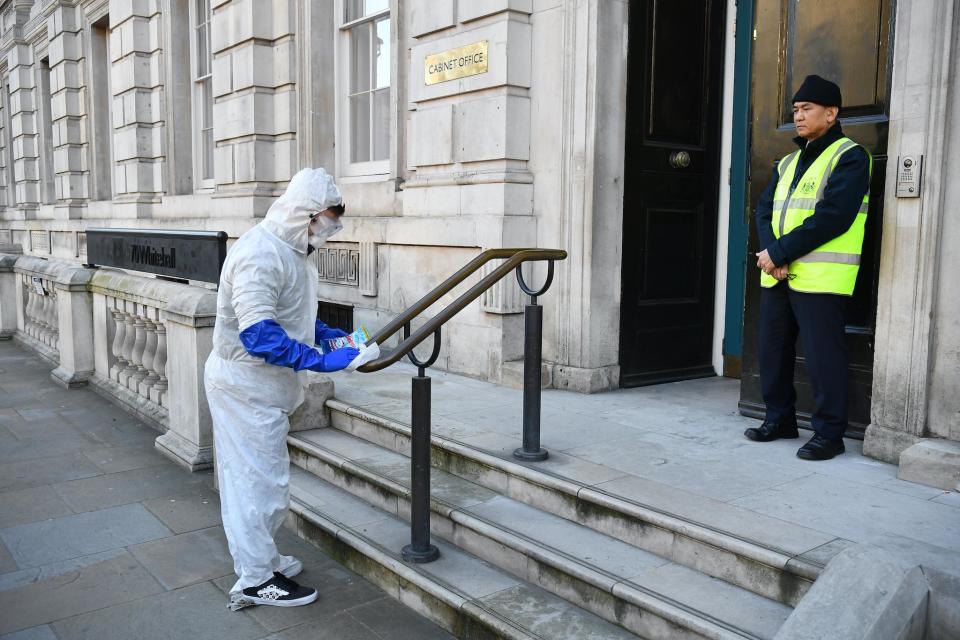Zoom: Video chat used by Boris Johnson for cabinet meetings and offices across world dropped by Ministry of Defence over security concerns

The Ministry of Defence is reportedly discouraging use of the video chat app Zoom over concerns about its security.
The ban comes as Boris Johnson uses the app to run cabinet meetings and offices across the country rely on it to bring together virtual meetings.
Security experts have expressed concern that sensitive information could be compromised by the use of the app, which is built by a private company based in the US.
Zoom was hit by security concerns last year when it emerged that a major vulnerability in its app allowed people to be spied on through their webcam. Experts at the time criticised the company for being slow to close that security hole, which allowed users on Macs to be watched through their webcam.
The company has since fixed the issue and no similar bugs are thought to be currently live.
The Ministry of Defence did not comment on the ban, which was first reported by the Press Association. A message sent to staff said that the organisation was pausing the use of Zoom "with immediate effect whilst we investigate security implications that come with it", the agency reported.
The email said that a decision would then be made over whether staff would then keep using the video conferencing app.
The MoD is understood to still be using the app to conduct cross-government meetings about relatively low-classification business.
Experts have already expressed concern that photos released by Number 10 showed Boris Johnson using the app to run meetings of the Cabinet.
"Seriously worried by the security of Cabinet being conducted over Zoom. What is happening here?" said Andrew Dwyer, a cyber security researcher at the University of Bristol.
But the government said that the app is still believed to be safe to use for meetings that do not require the very highest level of security. Anything with a security classification high enough will use more secure systems.
"In the current unprecedented circumstances the need for effective channels of communication are vital," a government spokesperson said. "National Cyber Security Centre guidance shows there is no security reason for Zoom not to be used for conversations below a certain classification."
In addition to its use in government, Zoom has shot up in popularity as the most famous of a number of apps that offices and workplaces are using to allow colleagues to speak to each other during the coronavirus outbreak. The app allows multiple users to join a video call and collaborate despite the rules on physical distancing that are intended to stop the spread of Covid-19.
Zoom and the Ministry of Defence did not comment.
Read more
How to help the elderly and vulnerable during the coronavirus
How to feel less anxious about the coronavirus
How to be productive when working from home during coronavirus

 Yahoo Finance
Yahoo Finance 